Palmetto Bluff Real Estate Company Sales Office
Office Hours
Monday-Friday 9am - 5pm
Saturday 9am - 4pm
Sunday 12 - 4pm
Saturday 9am - 4pm
Sunday 12 - 4pm
In early spring, when the crisp of the morning air evokes a memory of warmth, when the gently sloping foothills of Virginia’s slice of the Blue Ridge Mountains become awash in a cloak of green, that is Rutger de Vink’s favorite time of year.
“In the beginning of April, the buds start swelling, and a little green comes [on the vine]. And then by the end of April, the buds come up. The anticipation of the growing season … that’s what gets me excited,” Rutger said.
Rutger owns RdV Vineyards, a winery set snugly on the side of a hilltop in the mountainous region of Virginia, finding his joie de vivre in mastering the art of fine wine in a part of the world little known for such luxuries. Since opening his winery a little more than five years ago, Rutger has risen to the top in the world of high quality wines, earning a reputation for making an elegant, sophisticated selection that rivals those made in Napa and Sonoma.
I first met Rutger and his wife Jenny at Music To Your Mouth’s event at The Dabney in Washington, DC, this past summer. A power couple in the humblest sense of the phrase, Rutger and Jenny brought some of RdV’s most delicious Bordeaux-style blends from 2010 to pair with the delectable dishes served to hungry DC diners. I introduced myself to Rutger and Jenny and was immediately intrigued by the pair. Rutger is tall and tanned, with an easy, confident manner that fits somewhere between dashingly debonair and seasoned outdoorsman. Jenny is petite and bright-eyed, and she speaks in an eloquent, thoughtful manner – the kind that always makes you stop what you are doing to listen because you know what she’s saying is going to be good.
We sat next to each other during the dinner, devouring plate after plate of food, washed down with a different wine at each course. When the wine from RdV was served, both Jenny and Rutger beamed at the bottle like it was their newborn baby, and they explained the composition and story of their wines to me with a passionate fervor that was refreshingly uncomplicated and, better yet, without a hint of the usual wine snobbery. For me, it was love at first glass, enjoying the wine as well as its makers.
As guests sipped their luscious wine, examining the deep color and tasting the rich, velvety notes each sip revealed, Rutger discussed with the group his vision for bringing fine wine to Virginia, and the lengths he and his team take to reflect that special terroir. Unsure of the exact meaning of terroir, a French word, in this context, I asked him to explain afterwards.
“Terroir, in French, means of the earth,” Rutger replied. “With wine, it means you can taste the earth; you can taste the land that particular vine grew from.”
I took another sip of the 2010 Rendezvous, and my untrained, immature palate searched for a taste of terroir. Nothing. I sipped again, this time concentrating feverishly on the deconstruction of what I was digesting – wait, what was that? Something full, something rich, something with substance. Is that terroir? Oh, who am I kidding? I have no clue. Then Jenny smiled at me, and I realized what it was – the taste of fulfillment of one’s life purpose in the form of a simple grape.
A Millennium Choice
Although Rutger has owned RdV Vineyards since 2004, his professional life until that point was not filled with winemaking. Rutger spent the first four years of his career serving in the U.S. Marine Corps, which he described as, “not really a job, but a way of life.” After his service in the Marines, he earned his Master of Business Administration degree from the Kellogg School of Management at Northwestern University, and upon graduation he went to work for a venture capital firm.
“So many people said, ‘Oh you must be having a great time.’ But for me, that wasn’t a way of life, it was a job. I was always focused on my time off and away [from the job]. It was at a New Year’s Eve party in 2000 – you know, the millennium – when I decided I’ve got to change my life. I’ve got to do something with my hands, in the sun and get dirty.”
And as a man of conviction, that is exactly what Rutger did. He quit his corporate life and began searching for a way to satiate his thirst for something new, something real and something he could create with his hands. Rutger began an apprenticeship with Jim Law at Linden Vineyards, one of the most prestigious vineyards in the region and one of the founding fathers of the contemporary Virginia wine scene.
“Within the first week, I knew this was what I wanted to do with my life,” Rutger remembered.
He stayed on at Linden Vineyards for the next two years, working side by side with Jim, whom Rutger fondly calls the “Godfather of Virginia wine” for his professional approach to running a vineyard in an area not known for such endeavors. During his time at Linden Vineyards, Rutger gathered the essentials of viticulture and winemaking from Jim, who also impressed upon him the importance of choosing the correct site for a vineyard: “The wine comes from the site; it isn’t manipulated in the cellar,” Rutger said.
From Virginia, Rutger then traveled to Bordeaux, France, where he surrounded himself with experts in his new venture and studied winemaking intensely, seeing firsthand the effect terroir has on wine. A few years later, he was ready. Rutger began scouting sites to start his own vineyard. His search started on the coast of Sonoma and then north of Santa Barbara, both of which are world-renowned for their grape-friendly soil, but neither spoke to him.
He spent three years looking for the perfect site, and finally, he found one – on a rocky hillside in the foothills of the Blue Ridge Mountains in Virginia, just 60 miles from Washington, DC. He knew his work was cut out for him. The dry, arid climate of Napa and Sonoma in California make the soil there ripe for growing grapes that make wonderful wine, but the temperate, rainier climate of Virginia? Not quite the same story, but the granite hilltop he chose does provide the well-drained soil in which grape vines thrive.
But that was just the beginning. Rutger and his team spent the next two years preparing their 16 acres of land for its next adventure of growing grapes. After the soil was ready, the real fun began. The RdV team planted row after row of grape vines, carefully positioning each plant to ensure its longevity and fruitfulness. Divided into 11 parcels, RdV cultivates cabernet sauvignon, merlot, cabernet franc and petit verdot vines. And the team who manages the vineyards still maintains intimate care of each plant all these years later.
“We spend the most time in the vineyard, treating each plant like a bonsai tree,” Rutger said. “We consider ourselves sophisticated farmers of sorts.”
He says ‘sophisticated farmers;’ I say miracle-workers, but that’s neither here nor there.
%GALLERY%A Signature Silo
With a vineyard as special and unique as RdV, the actual structure of the winery had to be just as exceptional.
“You can make great wine in a warehouse, but our investors wanted to do something more special,” said Rutger. “We wanted to build a winery that was more modern, but paid homage to our roots.”
As the focal point of the painting that is RdV Vineyards, the winery is centered around a towering silo, which serves as a nod to American agricultural history. On the outside, a visual of rough-hewn siding is presented, garnering the expectation that the interior will follow this traditional aesthetic as well. But just the opposite occurs. The inside of the winery embraces a modern, minimalist approach in its architectural structure and décor. The fermentation room is an extension from the silo, filled with vats of wine preoccupied with aging to perfection. There is also a room for bottling and one for storage (each wine is stored for two years), both of which reflect the contemporary design of the 5,000-square-foot winery.
But Rutger and his team recommend exploring RdV yourself. Tours of the remarkable facility and vineyards along with a tasting of RdV wines can be arranged Thursday through Sunday for just $50 per person.
An Old World Wine in the 21st Century
And finally – the wine. Priding itself on maintaining the highest quality in all it does, RdV produces two main wines: Lost Mountain and Rendezvous.
“Lost Mountain is our showcase wine, our expression of cabernet sauvignon,” said Rutger. “It has a powerful structure and finesse. It’s a little austere in the sense that it is very structured, but that’s our age-worthy wine.”
Showcase wine indeed – at $95 per bottle, you’ll certainly want to imbibe this blend slowly and purposefully. Composed primarily of the cabernet sauvignon fruit Rutger and his team work so diligently and passionately to nurture, Lost Mountain is as strikingly robust as the cliffs that surround the RdV vineyards are steep.
Next on the RdV wine list is the Rendezvous, a carefully curated composition of the four different grape varieties RdV grows. Each year a different blend of Rendezvous is created, based on the fruit harvested, making each vintage a custom recipe.
“It’s a new-world style wine and more approachable,” Rutger explained. “It’s rounder, fleshier than the Lost Mountain, and the one we usually pour at wine dinners, like the one we did in DC.”
At $75 per bottle, the price is a bit more palatable for those wishing to drink fine wine without crossing the $100 threshold. “It’s what Jenny and I drink together at home,” Rutger confided.
And because there’s no sense in wasting perfectly delicious grapes, RdV creates a small batch of what Rutger lovingly refers to as the Friends and Family blend, sold at just $35. “It’s [made from] the stuff that doesn’t make it into the other two wines. It’s not bad; it just doesn’t quite fit. I don’t want to say it’s the ‘kitchen sink,’ but it is,” Rutger chuckled.
As each wine RdV creates is made from a blend of grapes, Rutger relies on the expertise from professional consultants from Bordeaux who, after much extensive research and tasting of that year’s harvest, craft the delicate composition of the Lost Mountain and Rendezvous wines. There are 11 parcels, or blocks, Rutger calls them, and each block grows a different variety of grape. Currently, they grow four blocks of cabernet sauvignon, three blocks of merlot, three blocks of cabernet franc, and one block of petit verdot.
“Each block tastes very different after the fermentation,” Rutger said. “So we’ll have figure out, ‘OK, this one will marry well with this one,’ and so on. This is where the artistry, the craftsmanship, comes in.
[The consultant] Eric has taught me a lot about starting with great fruit. Starting with beautiful grapes, then the wine will be fantastic. It’ll turn into something very special.”
A Wine-ding Road
After producing several successful seasons of award-winning wine, Rutger and the team at RdV seem to have found their stride.
“We’re finding our style in wines,” Rutger said. “As the vines mature more, they are able to produce something a little more sophisticated.”
And others would agree. At a recent wine conference (yes, such things do exist) Rutger attended, he received the highest praise from a colleague. Rutger introduced himself to a group as a winemaker from Virginia, to which one Napa winemaker replied, “Have you ever heard of Rd … RdV? It’s a Virginia wine?” When Rutger nodded and claimed it as his own, the winemaker responded, “That shit’s the bomb!”
In retelling this story, I could tell that this unsolicited (and rather colorful) compliment was as good as it gets for Rutger. “When you say you’re from Virginia, you’re kind of the odd man out,” he laughed.
Moving forward, Rutger continues to realize his life’s passion day in and day out, but it’s not without its lessons, and he’s grateful for each one he learns along the way.
“The less you do, the more it shows,” Rutger said thoughtfully. “It’s kind of ironic for me being from the military where you always work harder, but the thing I’ve had to learn over and over again is ‘less is more.’ Let the wine shine on its own.”
And as for reflecting the much sought-after terroir? You’ll just have to try it for yourself.

Photography by Summer Pagatpatan Bentley || Chocolate Labrador || Male || 9 Years Old Bentley is always happy to see anyone. He’s the fan favorite in our neighborhood and might bust down the door to see you! Bentley loves to go on a treat walk in Wilson ...
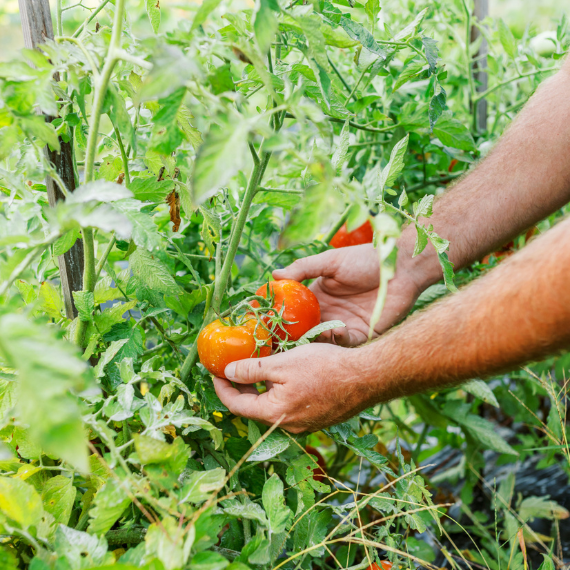
What’s more “summer” than tomatoes from the garden? Or, in Palmetto Bluff’s case–tomatoes from The Farm? We asked our newest addition to the Palmetto Bluff Club’s culinary team, Chef Beth, to share a classic summer staple from her library of recipes: Fattouche...
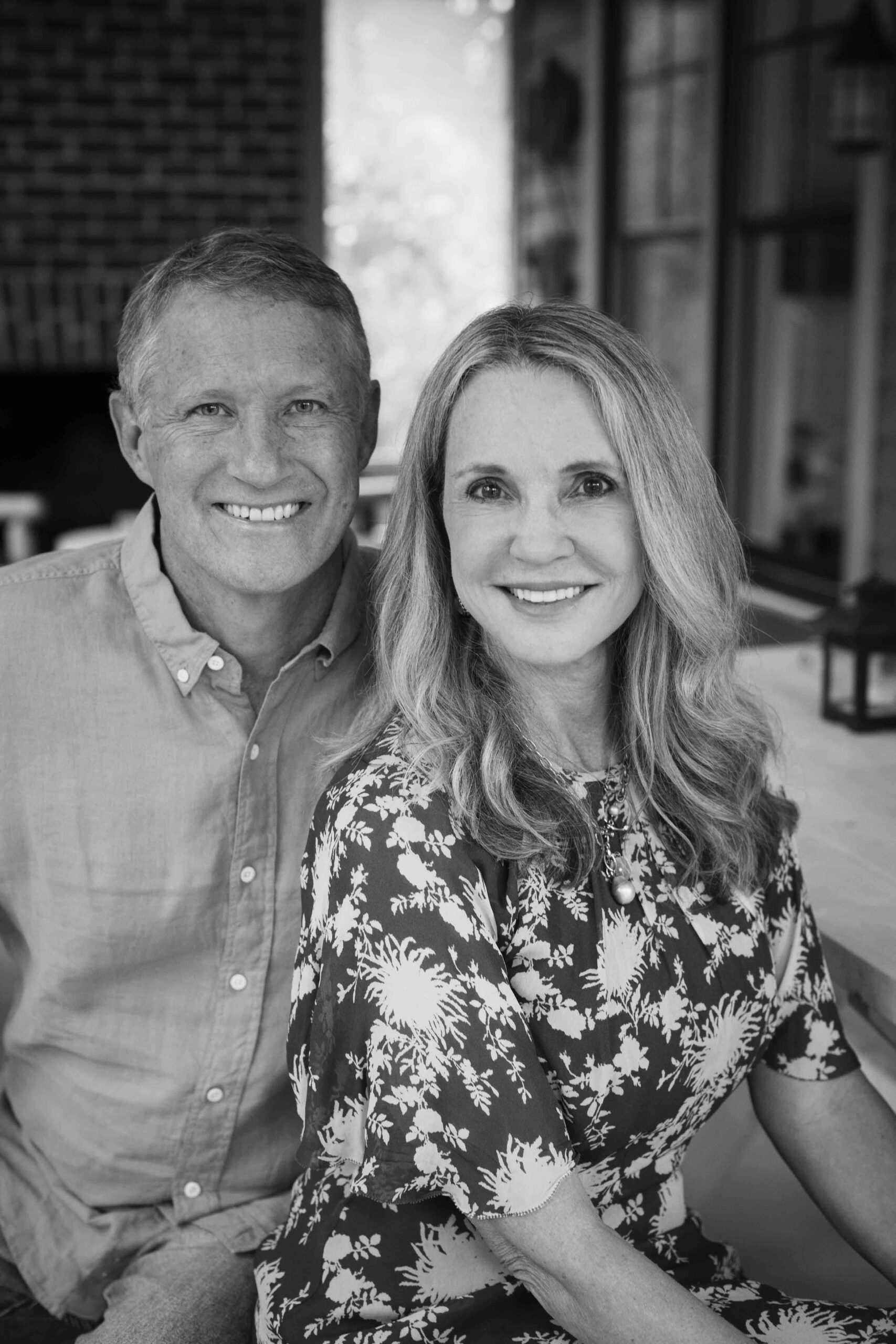
How did you two meet? Patti: We actually met in college but never dated. We went to Auburn University and both moved to Atlanta after graduation. He was in graduate school at Emory, and I worked as a nurse at Emory’s Children’s Hospital. Pat: Our friend grou...
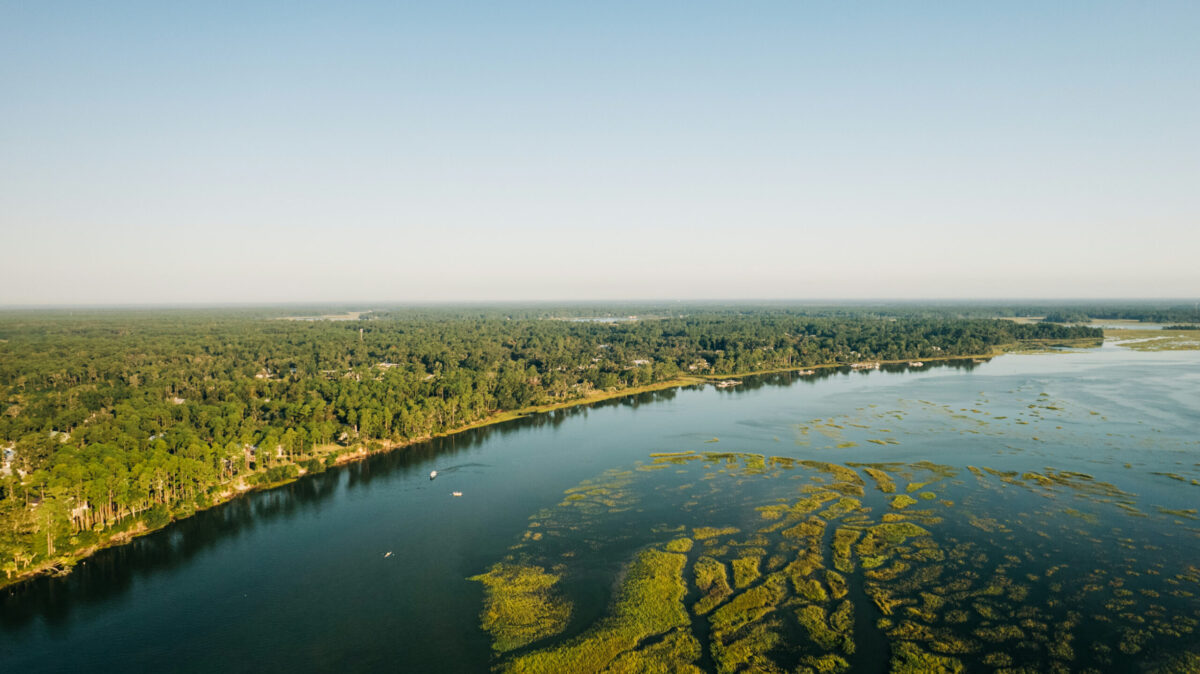
Boat The Bluff: South Carolina Waterways Imagine gliding through serene, glassy waters surrounded by lush marshlands and maritime forests. Welcome to Palmetto Bluff, South Carolina—a paradise for nature enthusiasts, water sports aficionados, and anyone seekin...
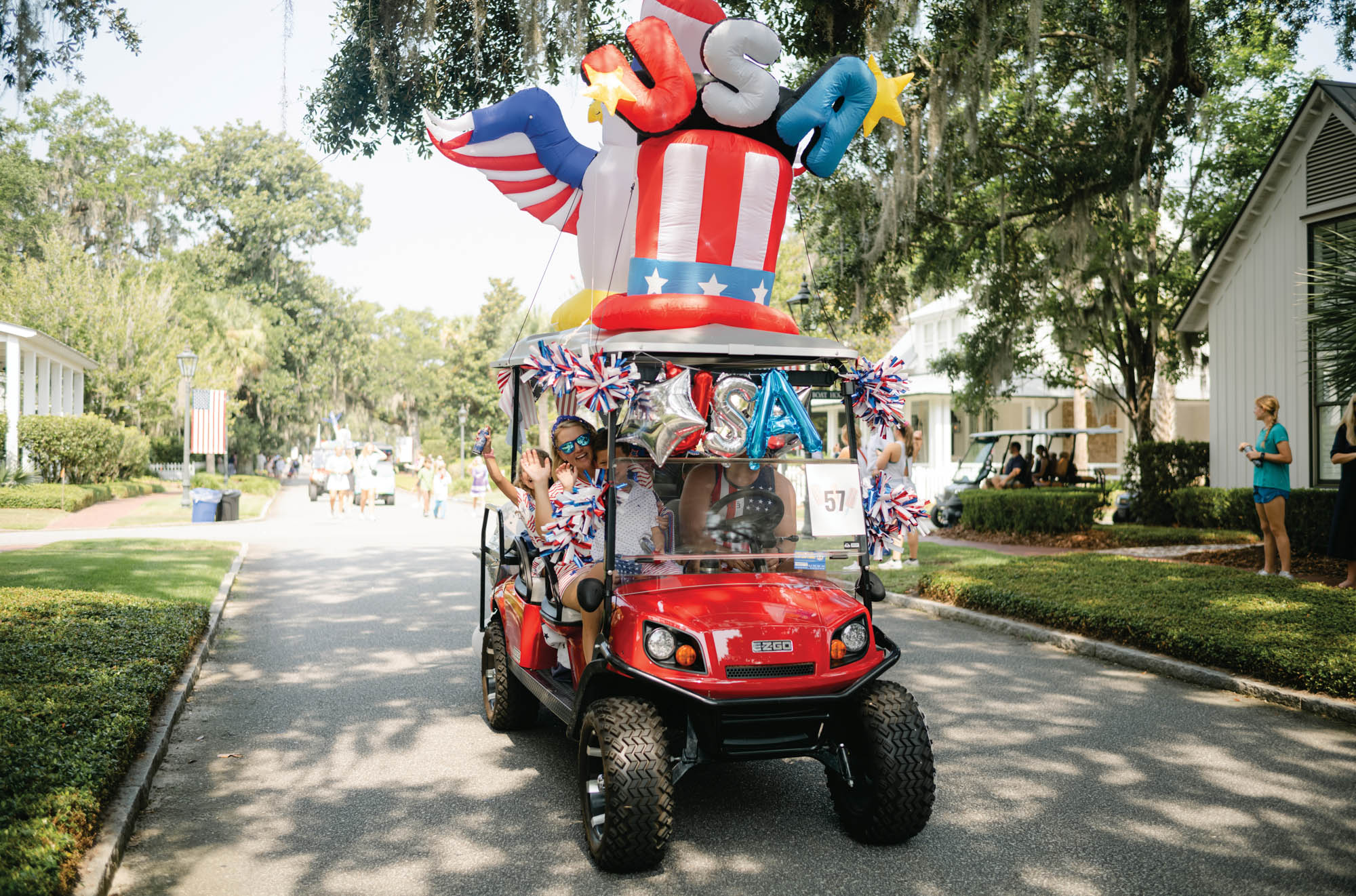
Photography by Charlotte Zacharkiw The fourth of July is the highlight of the Palmetto Bluff calendar. Follow along with the Truslow family on this magical summer day. Neal and Lauren Truslow come to Palmetto Bluff as often as they can. Their kids...
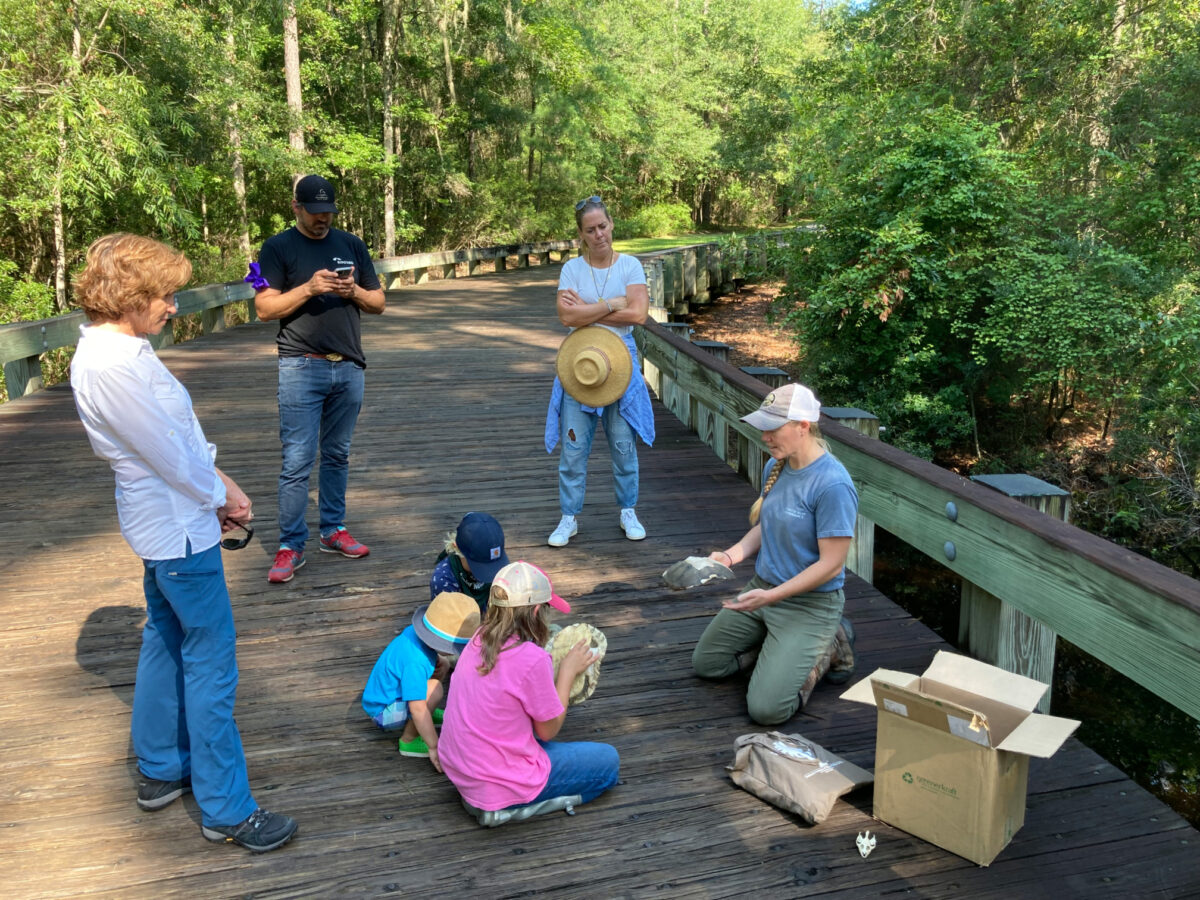
Protecting Nature and History at Palmetto Bluff In the heart of South Carolina's Lowcountry lies Palmetto Bluff, a sanctuary of natural beauty, rich history, and vibrant ecosystems. Since its establishment in 2003, the Palmetto Bluff Conservancy has been dedi...

Photography by Gately Williams Cruise Control Palmetto Bluff lies at the heart of the vast network of rivers and creeks that connect the South Carolina Lowcountry’s barrier islands. A stone’s throw from the notable cultural and historic hubs of Savannah, B...
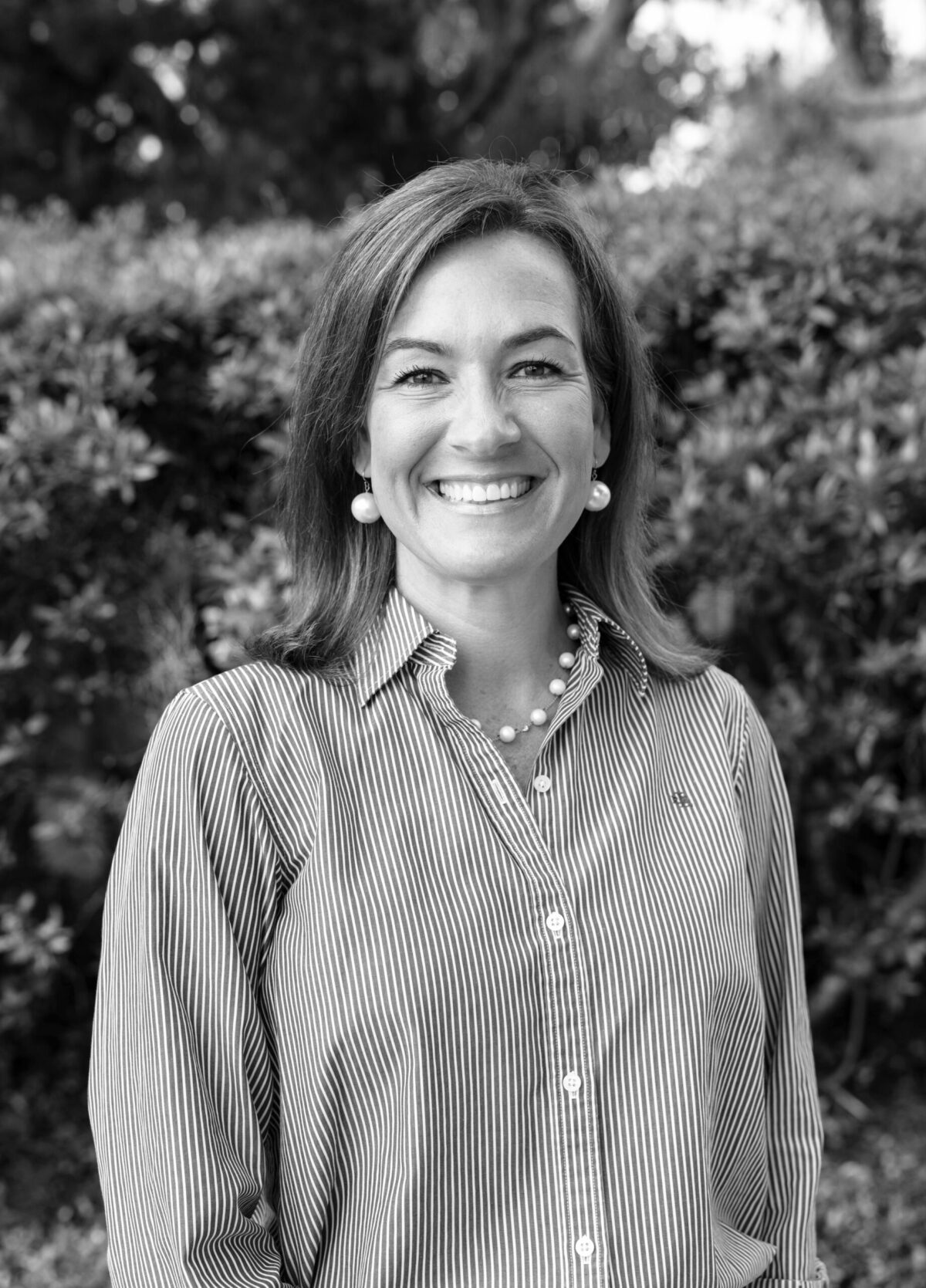
Tracy’s Journey to Palmetto Bluff Real Estate Situated in the heart of Bluffton, South Carolina, Palmetto Bluff is more than just a community—it's a place of magic and wonder. For Tracy Schyberg, a dedicated sales executive with the Palmetto Bluff Real Estate...
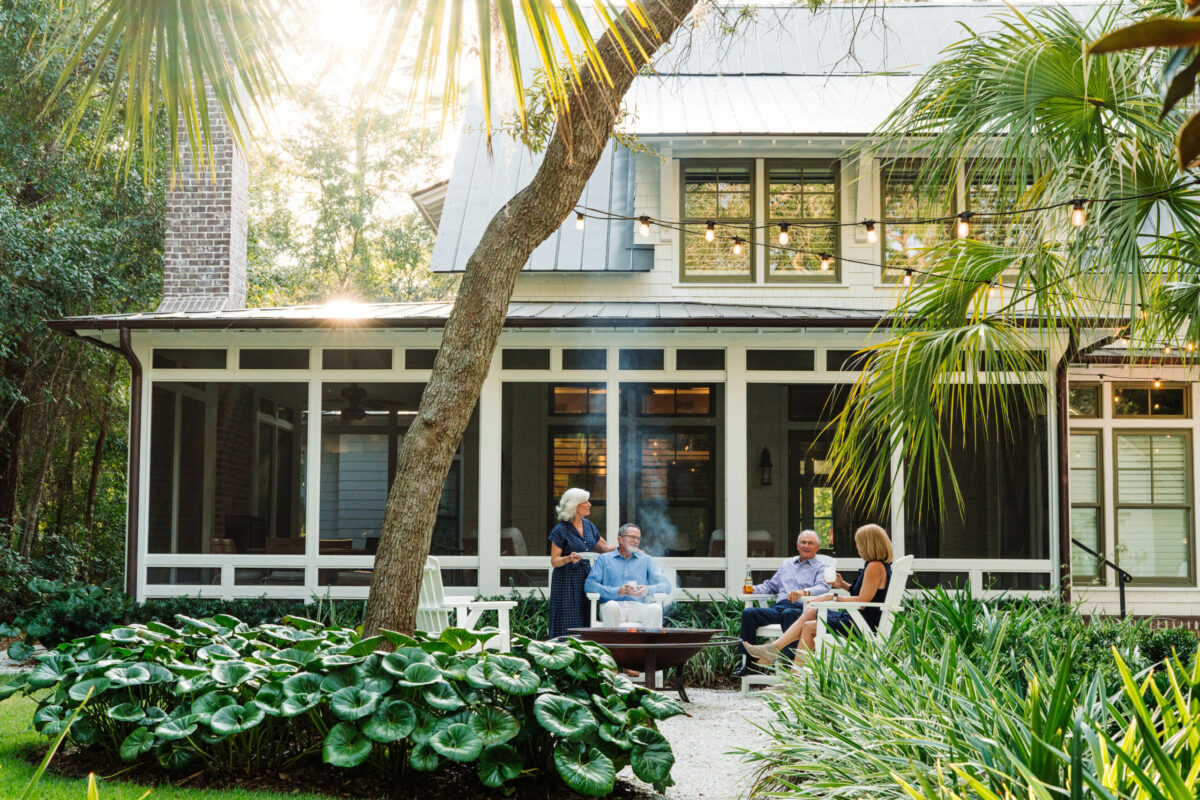
Enhancing Coastal Living With Lowcountry Landscaping Trends The Lowcountry lies along the southeastern coast of the United States, a region known for its breathtaking landscapes, rich history, and unique culture. From the charming streets of Charleston to the...
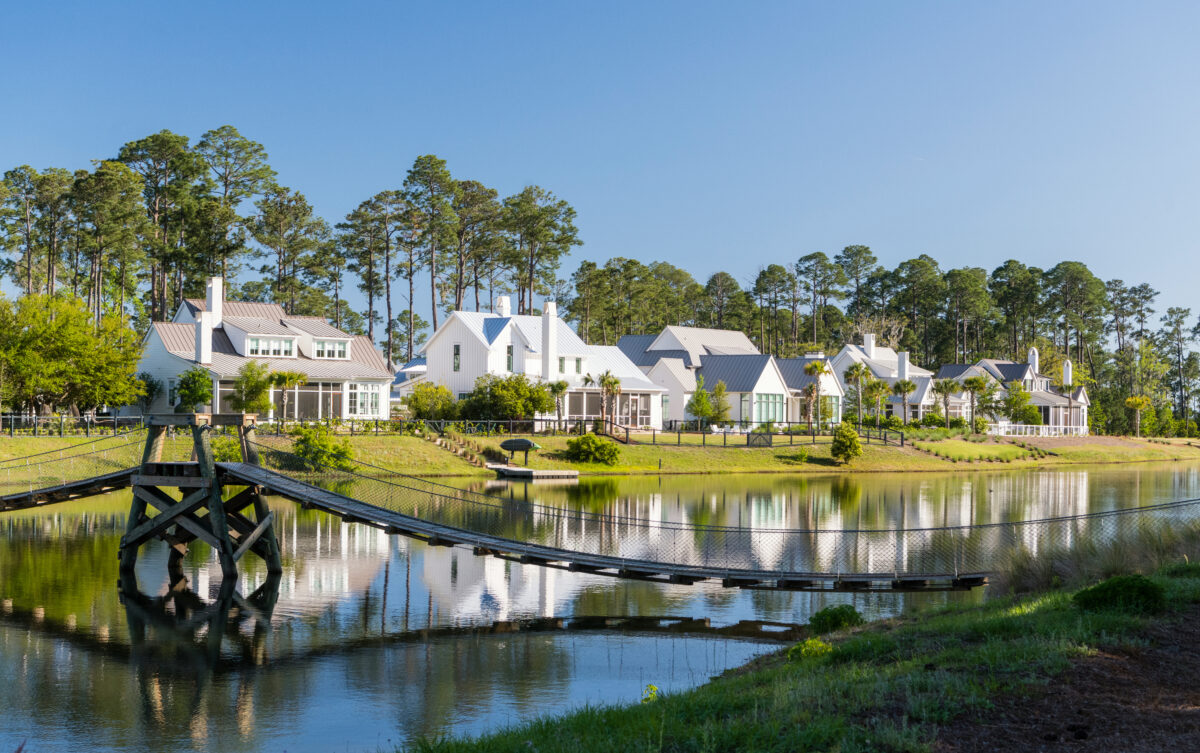
Palmetto Bluff Real Estate Available in Moreland Forest Nestled in the heart of the Lowcountry, Moreland Forest is a charming neighborhood known for its beautiful natural surroundings, Lowcountry architecture, and luxurious amenities. Within the lush forests ...
Learn about the Palmetto Bluff Conservancy and how we keep the vision of our land in place.
On land or water, there is an ever-evolving variety of activities.
We do not attempt to independently verify the currency, completeness, accuracy or authenticity of the data contained herein. All area measurements and calculations are approximate and should be independently verified. Data may be subject to transcription and transmission errors. Accordingly, the data is provided on an “as is” “as available” basis only and may not reflect all real estate activity in the market”. © [2023] REsides, Inc. All rights reserved. Certain information contained herein is derived from information, which is the licensed property of, and copyrighted by, REsides, Inc.